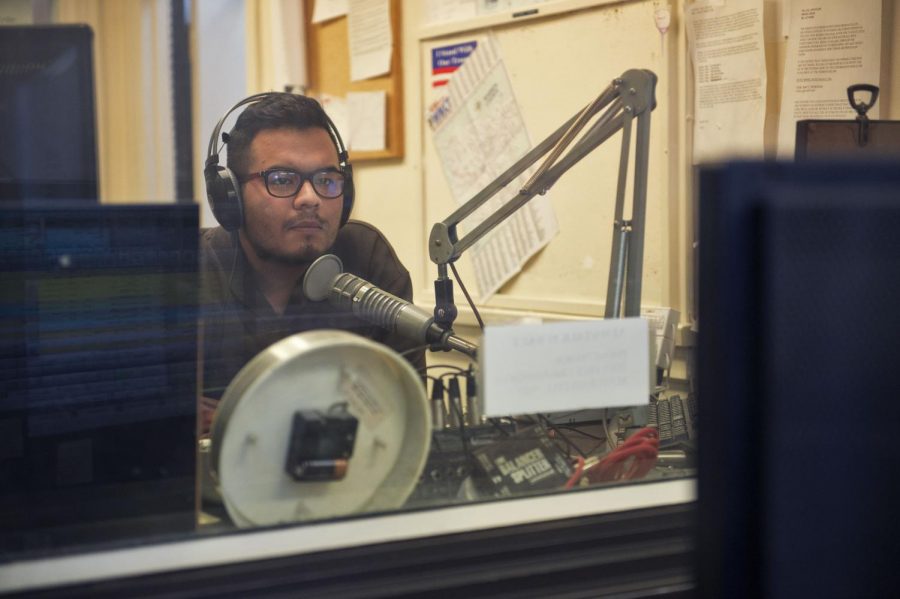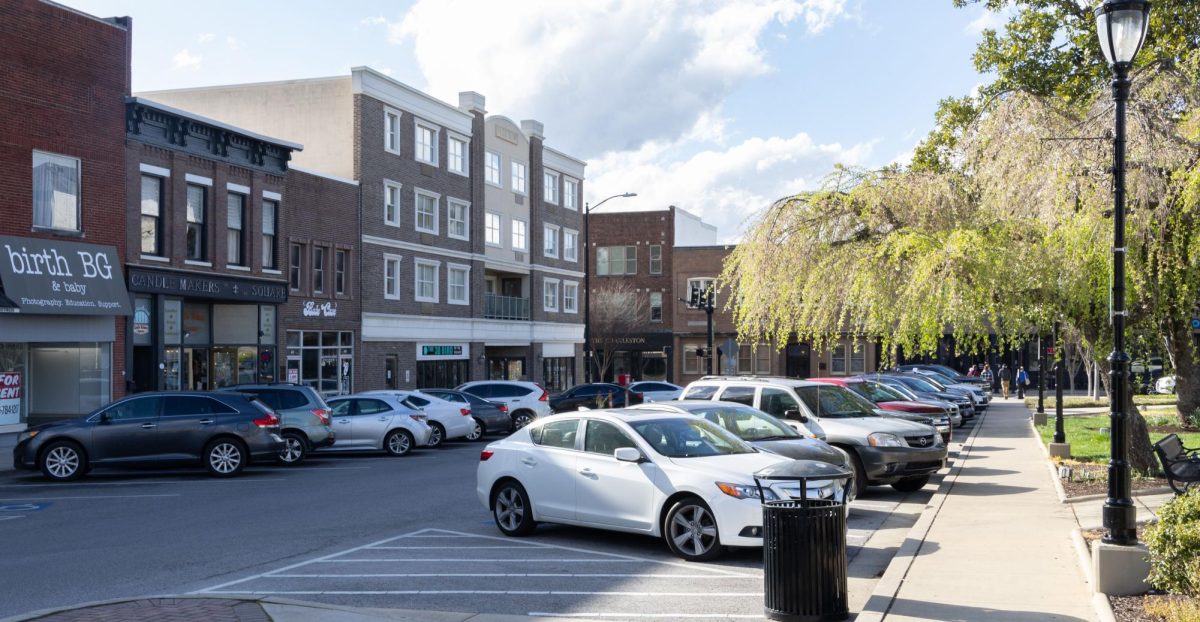Students use air waves to broadcast Spanish speaking program
February 26, 2015
For more than a decade, the American dream wasn’t even a tangible thought for Mexican immigrants and WKU students Carlos Zavaleta and Alejandra Valadez Rodriguez.
Zavaleta immigrated to Nashville with his family at age 10, while Valadez Rodriguez moved to Franklin, Tennessee when she was 9.
They would live their prepubescent and teenage lives with the thought of deportation forever in their minds. Either of their families could’ve been ripped apart by a simple traffic stop.
“I was scared for my parents,” Valadez Rodriguez said. “We heard stories about people being pulled over without licenses and going to jail… from jail they’d be deported. You really were exposed anywhere.”
The fear of deportation subsided in June 2012, when President Barack Obama signed into effect the Deferred Action for Childhood Arrivals, or DACA, program. DACA allows undocumented immigrants who arrived to the U.S. as children to remain in the country and work legally for a two-year period. After the two years pass, a DACA renewal application can be submitted.
Zavaleta, 21, and Valadez Rodriguez , 22, were part of the roughly 580,000 undocumented immigrants living in the United States who applied for and received protection through DACA.
“It was completely life-changing,” Valadez Rodriguez said.
Valadez Rodriguez is now fulfilling her life-long dream of attending college, but not without a price.
Valadez Rodriguez is currently a junior enrolled in WKU’s dental hygiene program, but DACA recipients are ineligible to receive government-based financial aid— such as Pell Grants and Stafford Loans. Instead, Valadez Rodriguez’s college education is paid for out of her own pocket and through private scholarships.
It’s the same for Zavaleta, who is a senior in the computer science program.
Outside of the classroom, the two lead lives committed to helping undocumented persons move one step closer to having the American dream— and they do it one sound wave at a time.
Zavaleta and Valadez Rodriguez hit the airwaves for two hours each Sunday on Bowling Green’s only Spanish radio program, La Nuestra, to inform and entertain the Latino community.
The Spanish-speaking population in Bowling Green has grown to more than 3,500 people and it’s expanding, presenting a problem of news acquisition and creating an uninformed demographic.
With the weekly radio program airing on WKCT-AM 930, Zavaleta and Valadez Rodriguez are on a mission to enlighten Latinos here.
“I’m always trying to take care of my people,” Zavaleta said. “We want to be an outlet… we always try to put an emphasis on the information. My mom helped me through it all, she got me to where I am today. It’s my turn to do for others what she did for me.”
But a misinformed public isn’t the only thing blocking Zavaleta and Valadez Rodriguez’s goal of helping others.
On Feb. 16, U.S. District Judge Andrew S. Hanen ruled that the immigration policy Obama introduced late last year should not be enacted until a lawsuit filed by 26 states challenging its constitutionality is complete.
The immigration reform introduced by Obama expanded DACA and introduced a new program, Deferred Action for Parents of Americans (DAPA).
Both programs were set to take effect on Feb. 17, roughly 90 days after being announced. Without the district court’s objection, the expansion would’ve allowed an estimated 4.4 million more undocumented persons currently in the United States to meet the criteria to apply for DACA and DAPA.
The Department of Justice made an appeal to the Texas court ruling. The appeals process may take anywhere from a few weeks to a few months, and until the case at hand is settled, no new DACA or DAPA applications will be accepted— adding yet another bump in the night for undocumented immigrants to cope with in the quest to obtain the elusive American dream.




















![Megan Inman of Tennessee cries after embracing Drag performer and transgender advocate Jasmine St. James at the 9th Annual WKU Housing and Residence Life Drag Show at Knicely Conference Center on April 4, 2024. “[The community] was so warm and welcoming when I came out, if it wasn’t for the queens I wouldn’t be here,” Inman said.](https://wkuherald.com/wp-content/uploads/2024/04/smith_von_drag_3-600x419.jpg)




